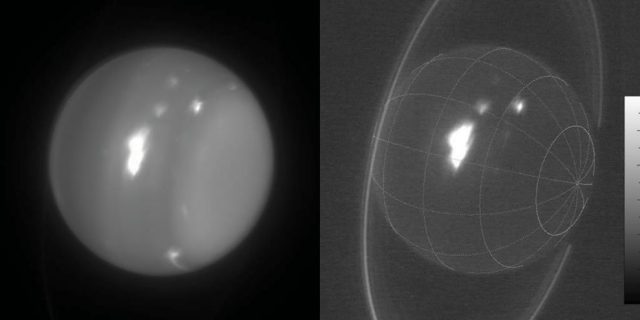MI weekly selection #101

Massive storms on Uranus baffle scientists
Astronomers have detected a wave of powerful storms touching down on the planet Uranus, surprising scientists who previously observed much more placid weather. Some of the storms are so bright that even amateurs can observe them using less advanced equipment.
The puzzle over organic matter on Mars
The long-standing debate over the origins of organic matter found on Mars may be one step closer to resolution. Scientists have replicated previous Mars lander missions that detected the organic chemical compound chloromethane and have found that organic materials in a meteorite that landed on Earth also produced chloromethane.
Chemical vapor lured ancient mosquitoes to human skin
Scientists have found that thousands of years ago, a chemical vapor emitted from human skin attracted ancient mosquitoes, causing them to prefer human blood over animals. Mosquitoes now recognize the natural human smell as a sign that food is nearby, say scientists.
Clues to human resilience may be found deep inside the brain
Neuroscientists have uncovered fresh clues as to why some people handle adversity better than others. According to a study conducted on mice, neurons deep inside the brain may be responsible for making people prone to depression more likely to break down when faced with a stressful event.
Sstem cells responsible for lung-tissue regeneration
A study in the journal Nature sheds light on the mechanism behind lung regeneration with the discovery of adult lung stem cells p63+/Krt5+ in distal airways of mice infected with the H1N1 virus. Jackson Laboratory researchers found that when grown in culture, they form alveolar-like structures and migrate to inflammation sites following infection. When the cells were removed, the subjects failed to recover from infection, which caused scarring and impaired oxygen exchange.